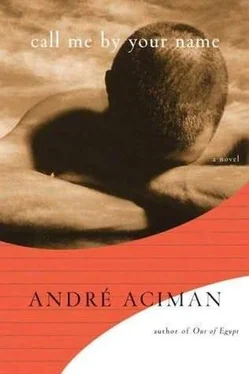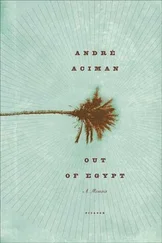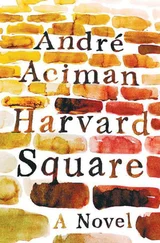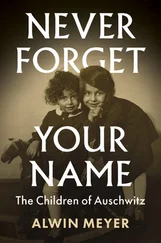André Aciman - Call Me by Your Name
Здесь есть возможность читать онлайн «André Aciman - Call Me by Your Name» весь текст электронной книги совершенно бесплатно (целиком полную версию без сокращений). В некоторых случаях можно слушать аудио, скачать через торрент в формате fb2 и присутствует краткое содержание. Год выпуска: 2007, Издательство: Farrar, Straus and Giroux, Жанр: Современная проза, на английском языке. Описание произведения, (предисловие) а так же отзывы посетителей доступны на портале библиотеки ЛибКат.
- Название:Call Me by Your Name
- Автор:
- Издательство:Farrar, Straus and Giroux
- Жанр:
- Год:2007
- ISBN:нет данных
- Рейтинг книги:5 / 5. Голосов: 6
-
Избранное:Добавить в избранное
- Отзывы:
-
Ваша оценка:
- 100
- 1
- 2
- 3
- 4
- 5
Call Me by Your Name: краткое содержание, описание и аннотация
Предлагаем к чтению аннотацию, описание, краткое содержание или предисловие (зависит от того, что написал сам автор книги «Call Me by Your Name»). Если вы не нашли необходимую информацию о книге — напишите в комментариях, мы постараемся отыскать её.
is clear-eyed, bare-knuckled, and ultimately unforgettable.
Call Me by Your Name — читать онлайн бесплатно полную книгу (весь текст) целиком
Ниже представлен текст книги, разбитый по страницам. Система сохранения места последней прочитанной страницы, позволяет с удобством читать онлайн бесплатно книгу «Call Me by Your Name», без необходимости каждый раз заново искать на чём Вы остановились. Поставьте закладку, и сможете в любой момент перейти на страницу, на которой закончили чтение.
Интервал:
Закладка:
Maybe it was the alcohol, maybe it was the truth, maybe I didn’t want things to turn abstract, but I felt I should say it, because this was the moment to say it, because it suddenly dawned on me that this was why I had come, to tell him “You are the only person I’d like to say goodbye to when I die, because only then will this thing I call my life make any sense. And if I should hear that you died, my life as I know it, the me who is speaking with you now, will cease to exist. Sometimes I have this awful picture of waking up in our house in B. and, looking out to the sea, hearing the news from the waves themselves, He died last night. We missed out on so much. It was a coma. Tomorrow I go back to my coma, and you to yours. Pardon, I didn’t mean to offend — I am sure yours is no coma.”
“No, a parallel life.”
Maybe every other sorrow I’d known in life suddenly decided to converge on this very one. I had to fight it off. And if he didn’t see, it’s probably because he himself was not immune to it.
On a whim, I asked him if he’d ever read a novel by Thomas Hardy called The Well-Beloved . No, he hadn’t. About a man who falls in love with a woman who, years after leaving him, dies. He visits her house and ends up meeting her daughter, with whom he falls in love, and after losing her as well, many years later, runs into her daughter, with whom he falls in love. “Do these things die out on their own or do some things need generations and lifetimes to sort themselves out?”
“I wouldn’t want one of my sons in your bed, any more than I’d like yours, if you were to have one, in my son’s.”
We chuckled. “I wonder about our fathers, though.”
He thought for a while, then smiled.
“What I don’t want is to receive a letter from your son with the bad news: And by the way, enclosed please find a framed postcard my father asked me to return to you. Nor do I want to answer with something like: You can come whenever you please, I am sure he would have wanted you to stay in his room. Promise me it won’t happen.”
“Promise.”
“What did you write on the back of the postcard?”
“It was going to be a surprise.”
“I’m too old for surprises. Besides, surprises always come with a sharp edge that is meant to hurt. I don’t want to be hurt — not by you. Tell me.”
“Just two words.”
“Let me guess: If not later, when? ”
“Two words, I said. Besides, that would be cruel.”
I thought for a while.
“I give up.”
“ Cor cordium , heart of hearts, I’ve never said anything truer in my life to anyone.”
I stared at him.
It was good we were in a public place.
“We should go.” He reached for his raincoat, which was folded next to his seat, and began to make motions of standing up.
I was going to walk him outside the hotel lobby and then stand and watch him go. Any moment now we were going to say goodbye. Suddenly part of my life was going to be taken away from me now and would never be given back.
“Suppose I walk you to your car,” I said.
“Suppose you came for dinner.”
“Suppose I did.”
Outside, the night was settling fast. I liked the peace and the silence of the countryside, with its fading alpenglow and darkling view of the river. Oliver country, I thought. The mottled lights from across the other bank beamed on the water, reminding me of Van Gogh’s Starlight Over the Rhone . Very autumnal, very beginning of school year, very Indian summer, and as always at Indian summer twilight, that lingering mix of unfinished summer business and unfinished homework and always the illusion of summer months ahead, which wears itself out no sooner than the sun has set.
I tried to picture his happy family, boys immersed in homework, or lumbering back from late practice, surly, ill-tempered thumping with muddied boots, every cliché racing through my mind. This is the man whose house I stayed in when I lived in Italy , he’d say, followed by grumpy harrumphs from two adolescents who couldn’t be bothered by the man from Italy or the house in Italy, but who’d reel in shock if told, Oh, and by the way, this man who was almost your age back then and who spent most of his days quietly transcribing The Seven Last Words of Christ each morning would sneak into my room at night and we’d fuck our brains out. So shake hands and be nice.
Then I thought of the drive back, late at night, along the starlit river to this rickety antique New England hotel on a shoreline that I hoped would remind us both of the bay of B., and of Van Gogh’s starry nights, and of the night I joined him on the rock and kissed him on the neck, and of the last night when we walked together on the coast road, sensing we’d run out of last-minute miracles to put off his leaving. I imagined being in his car asking myself, Who knows, would I want to, would he want to, perhaps a nightcap at the bar would decide, knowing that, all through dinner that evening, he and I would be worrying about the same exact thing, hoping it might happen, praying it might not, perhaps a nightcap would decide — I could just read it on his face as I pictured him looking away while uncorking a bottle of wine or while changing the music, because he too would catch the thought racing through my mind and want me to know he was debating the exact same thing, because, as he’d pour the wine for his wife, for me, for himself, it would finally dawn on us both that he was more me than I had ever been myself, because when he became me and I became him in bed so many years ago, he was and would forever remain, long after every forked road in life had done its work, my brother, my friend, my father, my son, my husband, my lover, myself. In the weeks we’d been thrown together that summer, our lives had scarcely touched, but we had crossed to the other bank, where time stops and heaven reaches down to earth and gives us that ration of what is from birth divinely ours. We looked the other way. We spoke about everything but. But we’ve always known, and not saying anything now confirmed it all the more. We had found the stars, you and I. And this is given once only.
Last summer he finally did come back. It was for an overnight visit, on his way from Rome to Menton. He arrived by cab down the tree-lined driveway, where the car stopped more or less where it had stopped twenty years before. He sprang out with his laptop, a huge athletic duffel bag, and a large gift-wrapped box, obviously a present. “For your mother,” he said when he caught my glance. “Better tell her what’s in it,” I said as soon as I helped put his things down in the foyer. “She suspects everyone.” He understood. It saddened him.
“Old room?” I asked.
“Old room,” he confirmed, even though we’d arranged everything by e-mail already.
“Old room it is, then.”
I wasn’t eager to go upstairs with him and was relieved to see Manfredi and Mafalda shuffle out of the kitchen to greet him as soon as they’d heard his taxi. Their giddy hugs and kisses defused some of the uneasiness I knew I’d feel as soon as he’d settled down in our house. I wanted their overexcited welcome to last well into the first hour of his stay. Anything to prevent us from sitting face-to-face over coffee and finally speaking the unavoidable two words: twenty years.
Instead, we’d leave his things in the foyer and hope Manfredi would bring them upstairs while Oliver and I took a quick walk around the house. “I’m sure you’re dying to see,” I’d say, meaning the garden, the balustrade, and the view of the sea. We’d work our way behind the pool, back into the living room where the old piano stood next to the French windows, and finally we would return to the foyer and find that his things had indeed already been carried upstairs. Part of me might want him to realize that nothing had changed since he’d been here last, that the orle of paradise was still there, and that the tilting gate to the beach still squeaked, that the world was exactly as he’d left it, minus Vimini, Anchise, and my father. This was the welcoming gesture I meant to extend. But another part of me wanted him to sense there was no point trying to catch up now — we’d traveled and been through too much without each other for there to be any common ground between us. Perhaps I wanted him to feel the sting of loss, and grieve. But in the end, and by way of compromise, perhaps, I decided that the easiest way was to show I’d forgotten none of it. I made a motion to take him to the empty lot that remained as scorched and fallow as when I’d shown it to him two decades before. I had barely finished my offer—“Been there, done that,” he replied. It was his way of telling me he hadn’t forgotten either. “Maybe you’d prefer to make a quick stop at the bank.” He burst out laughing. “I’ll bet you they never closed my account.” “If we have time, and if you care to, I’ll take you to the belfry. I know you’ve never been up there.”
Читать дальшеИнтервал:
Закладка:
Похожие книги на «Call Me by Your Name»
Представляем Вашему вниманию похожие книги на «Call Me by Your Name» списком для выбора. Мы отобрали схожую по названию и смыслу литературу в надежде предоставить читателям больше вариантов отыскать новые, интересные, ещё непрочитанные произведения.
Обсуждение, отзывы о книге «Call Me by Your Name» и просто собственные мнения читателей. Оставьте ваши комментарии, напишите, что Вы думаете о произведении, его смысле или главных героях. Укажите что конкретно понравилось, а что нет, и почему Вы так считаете.









